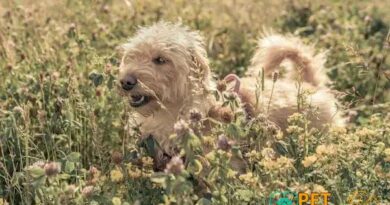What is agility competition tips
Understanding Agility Competitions
Agility competitions are fast-paced dog sports where handlers guide their dogs through a timed obstacle course. These events test the dog’s speed, accuracy, and ability to follow commands. The primary goal is to complete the course in the shortest time possible while avoiding faults, such as knocking down obstacles or missing jumps. Understanding the structure and rules of agility competitions is essential for both handlers and spectators.
Essential Equipment for Agility Competitions
In agility competitions, various pieces of equipment are used, including jumps, tunnels, weave poles, and contact obstacles like A-frames and seesaws. Each obstacle has specific requirements that dogs must meet to successfully navigate the course. Familiarizing yourself with the equipment and its layout can significantly enhance your dog’s performance and your handling strategy during competitions.
Training Techniques for Success
Effective training techniques are crucial for preparing your dog for agility competitions. Positive reinforcement methods, such as treats and praise, can motivate your dog to learn and master each obstacle. Consistent practice sessions focusing on speed, accuracy, and handler communication will help build your dog’s confidence and skills. Incorporating agility drills into your training routine can also improve your dog’s overall performance.
Building a Strong Handler-Dog Bond
A strong bond between handler and dog is vital for success in agility competitions. Trust and communication are key components that enable the dog to respond quickly to commands. Engaging in regular playtime, training sessions, and socialization can strengthen this bond. The more connected you are with your dog, the better they will perform under pressure during competitions.
Understanding Course Maps and Walkthroughs
Before competing, handlers are typically given a course map that outlines the sequence of obstacles. Understanding how to read and interpret these maps is essential for effective course navigation. Walkthroughs allow handlers to visualize the course and plan their handling strategy. Taking the time to study the map and practice the course layout can lead to improved performance during the actual competition.
Common Mistakes to Avoid
In agility competitions, handlers and dogs can make several common mistakes that may lead to faults or disqualification. These include poor timing in commands, not maintaining proper distance from obstacles, and failing to support the dog through transitions. Being aware of these pitfalls and actively working to avoid them during training can enhance your chances of success in competitions.
Choosing the Right Competitions
There are various levels and types of agility competitions, from local trials to national championships. Choosing the right competition for your dog’s skill level is crucial. Beginners may benefit from starting with smaller, local events to build confidence, while more experienced teams might aim for higher-level competitions. Researching different organizations and their requirements can help you find the best fit for your team.
Nutrition and Fitness for Competitive Dogs
Maintaining your dog’s physical health is essential for agility competitions. A balanced diet and regular exercise can enhance your dog’s stamina and agility. Consider consulting with a veterinarian or a canine nutritionist to develop a diet plan that supports your dog’s energy needs. Additionally, incorporating fitness routines, such as strength training and flexibility exercises, can improve your dog’s overall performance.
Preparing for Competition Day
On competition day, preparation is key to a successful performance. Ensure your dog is well-rested, hydrated, and has had a proper warm-up before competing. Arriving early allows you to acclimate to the environment and familiarize yourself with the venue. Having a checklist of items to bring, such as water, treats, and equipment, can help reduce stress and ensure a smooth experience.



